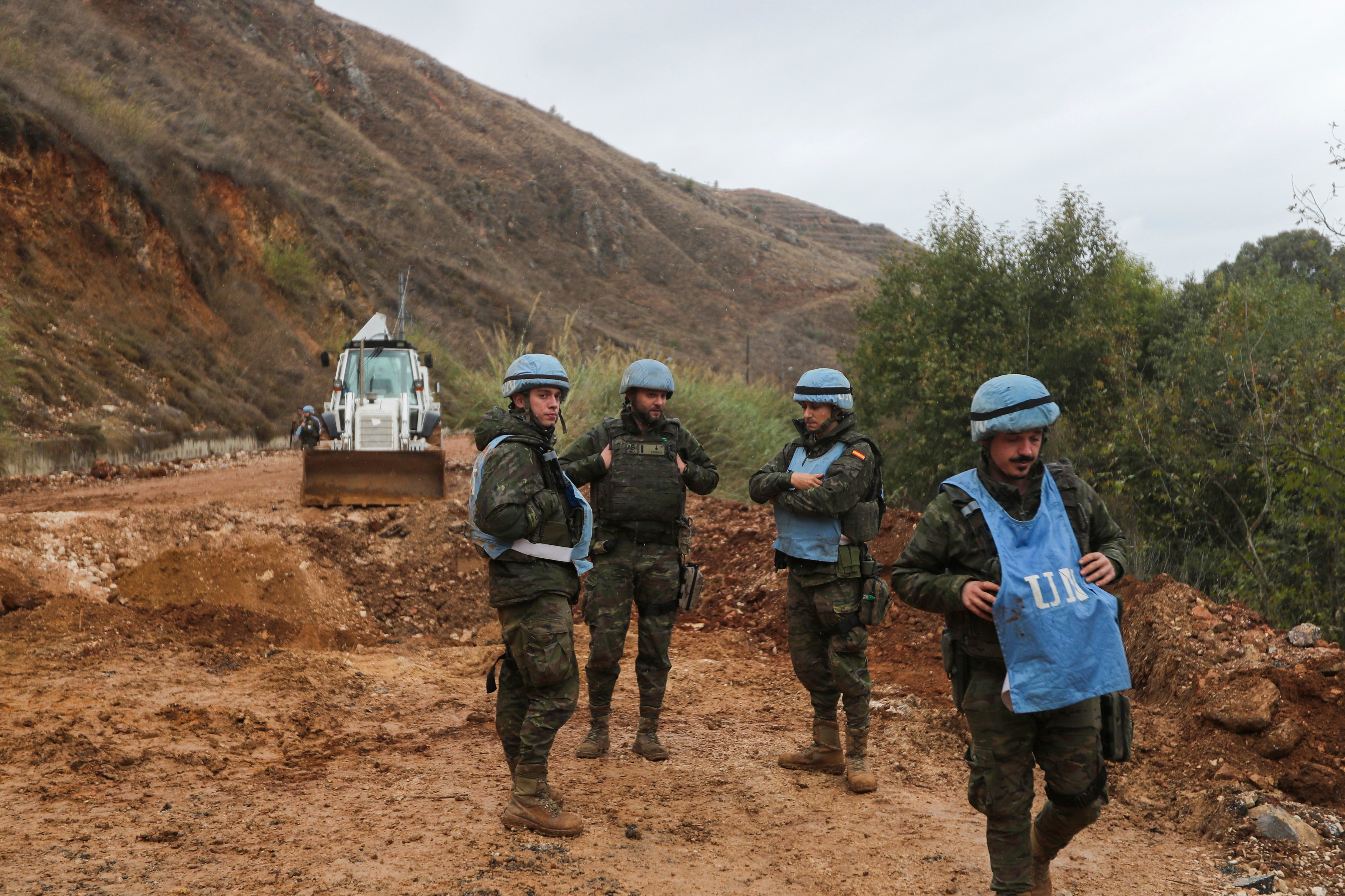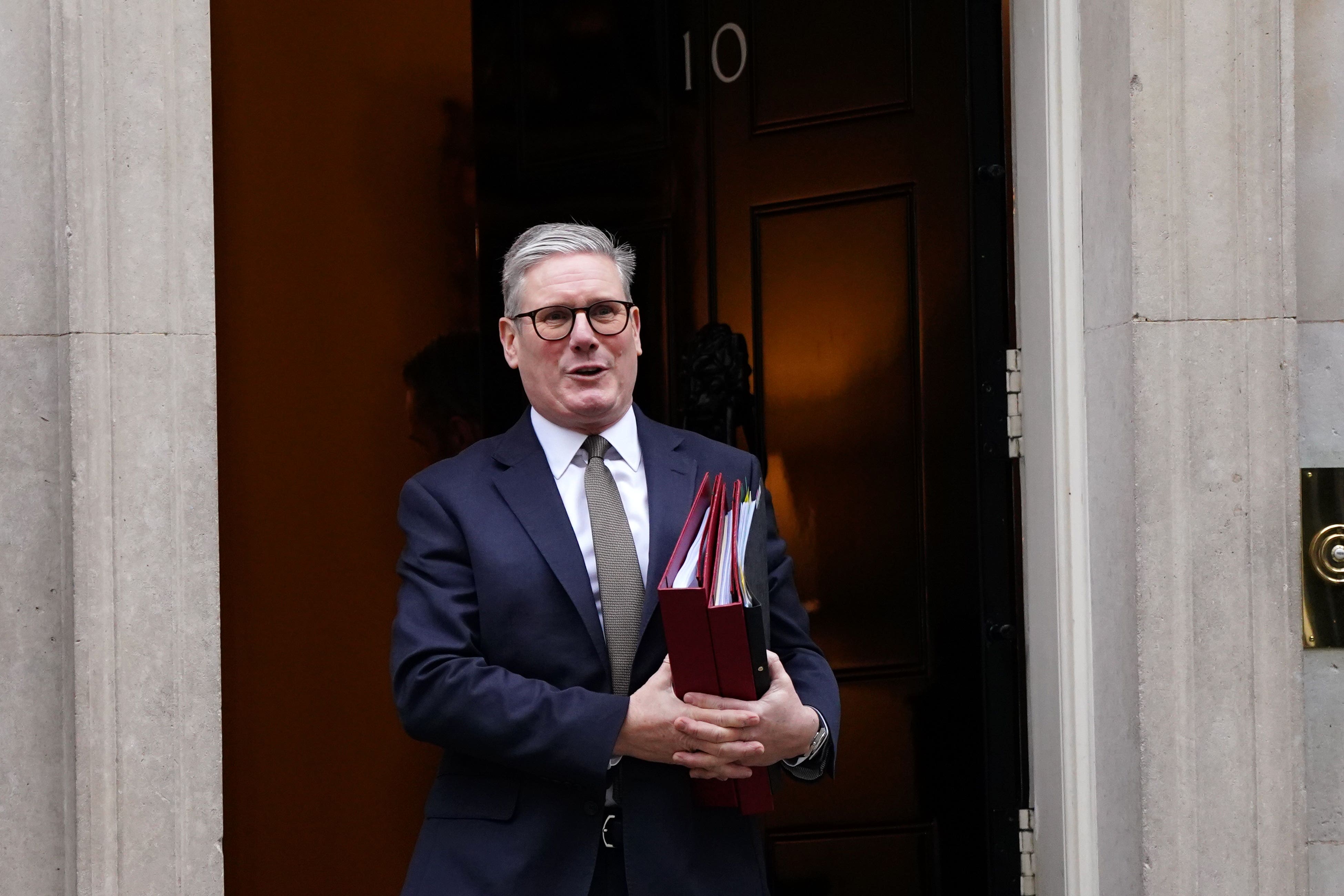UK to continue selling arms to Israel despite Lebanon ceasefire, Starmer says
Labour prime minister said Israel had right ‘to defend itself’ from attacks, including from Iran
Your support helps us to tell the story
From reproductive rights to climate change to Big Tech, The Independent is on the ground when the story is developing. Whether it's investigating the financials of Elon Musk's pro-Trump PAC or producing our latest documentary, 'The A Word', which shines a light on the American women fighting for reproductive rights, we know how important it is to parse out the facts from the messaging.
At such a critical moment in US history, we need reporters on the ground. Your donation allows us to keep sending journalists to speak to both sides of the story.
The Independent is trusted by Americans across the entire political spectrum. And unlike many other quality news outlets, we choose not to lock Americans out of our reporting and analysis with paywalls. We believe quality journalism should be available to everyone, paid for by those who can afford it.
Your support makes all the difference.The UK will continue to trade arms with Israel during its war in Gaza despite a ceasefire in Lebanon, Keir Starmer has said.
The prime minister reiterated that Israel had the right “to defend itself” from attacks, including from Iran.
More than a year of fighting between Israel and Hezbollah in Lebanon was suspended for 60 days due to the ceasefire deal, with both sides withdrawing from southern Lebanon, in the early hours of Wednesday morning.
In response, Sir Keir called for a wider ceasefire in the Middle East region to lead to an end to hostilities.
He told MPs: “We must seize this opportunity to build trust, de-escalate tensions and push for a wider ceasefire.”

The halt to fighting in Lebanon was “long overdue, but demonstrates that diplomacy can succeed even in the most challenging of circumstances”, he added.
But challenged by SNP MP Brendan O’Hara on what he called the UK’s “morally repugnant” arms sales to Israel, Sir Keir said: “I have set out my position very clearly in relation to the sale of capability to Israel to defend itself against attacks, such as those from Iran, and I am very clear that we will continue to do so.”
In September, foreign secretary David Lammy did suspend arms export licences to Israel - around 30 of 350 export licences - for use in military operations in Gaza following a review of Israel’s compliance with international humanitarian law.
Last month the world held its breath as Israel launched three waves of air strikes on Iranian military targets, explicitly linking them to missile strikes from Tehran weeks earlier. Israel had made no secret of its plans to hit back against Iran, which it also blames for backing Hamas in Gaza.
At the time Sir Keir called for restraint, saying: "I am clear that Israel has the right to defend itself against Iranian aggression and I am equally clear that we need to avoid further regional escalation and urge all sides to show restraint.”
Meanwhile, Priti Patel, the shadow foreign secretary, said she “cautiously” welcomed the deal for a ceasefire while “recognising there is a long road ahead”.
She added: “A huge international effort will be needed if this agreement is to endure. If it works, it could bring long awaited relief for many and potentially a pathway to sustainable peace…. The key to a sustainable end to the conflict in Gaza remains the release of the hostages. Hamas should release all remaining hostages immediately and unconditionally.”

Mr Lammy said the ceasefire announcement “offers hope”.
He added: “We strongly urge all parties to use this agreement to open a pathway to a lasting peace.” “We must seize this moment. It must be a turning point that builds momentum towards a lasting peace across the Middle East. In Gaza, we need an immediate ceasefire, the release of all the hostages and an end to Israeli restrictions on aid. The intolerable suffering must end.”
He also indicated that British troops could train and support the Lebanese armed forces to secure the ceasefire agreed between Israel and Hezbollah.
He told the chair of the Commons Foreign Affairs Committee Emily Thornberry that the UK had previously given "training and support" to the Lebanese army and said “yes” when asked if that would be renewed as part of the peace deal.
The Board of Deputies of British Jews welcomed the ceasefire and expressed gratitude “to the USA, France, and others who helped facilitate the agreement”.
“We hope that in due course communities on both sides of the border will be able to return safely to their homes and livelihoods,” Mr Rosenberg said.
“We pray that this breakthrough leads quickly to a wider cessation of hostilities in the region, including in Gaza, with the release of the hostages, aid and relief to Gazan civilians, and moves towards lasting peace and security between Israel, the Palestinians and the wider region”.

Join our commenting forum
Join thought-provoking conversations, follow other Independent readers and see their replies
Comments